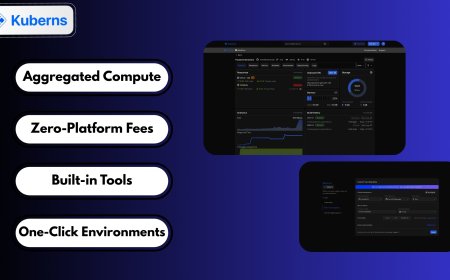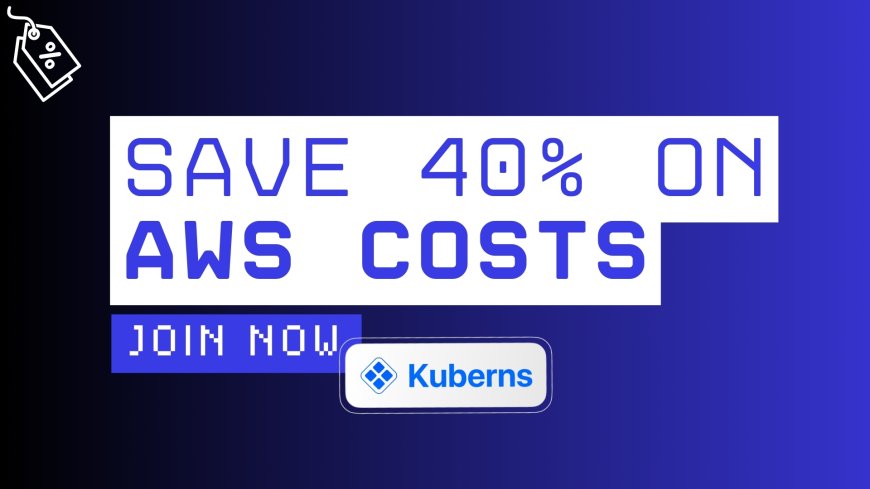Deploying Node.js/Django Apps to the Cloud? What Startups Should Know
For startups building with Node.js or Django, deploying to the cloud can be a game-changer offering scalability, accessibility, and the ability to reach global users.
But the cloud also brings challenges: unexpected costs, complex configurations, and performance bottlenecks can derail your growth if you’re not prepared.
Here’s what startups need to know to deploy Node.js and Django apps effectively, ensuring cost-efficiency, speed, and reliability.
Why Cloud Deployment Matters for Startups
Startups often operate with tight budgets and small teams, making the cloud an appropriate option. Platforms like AWS, Google Cloud, or AI-driven PaaS solutions (such as Kuberns) provide infrastructure that can scale with your user base, reducing the need for upfront hardware investments. For Node.js and Django apps popular choices for their speed and robust ecosystems the cloud enables:
- Global reach: Serve users worldwide with low latency.
- Scalability: Handle traffic spikes without manual intervention.
- Cost savings: Pay only for the resources you use (if managed wisely).
However, without the right strategy, cloud deployment can lead to bloated bills, slow release cycles, and security risks. Let’s break down the key considerations.
1. Choose the Right Cloud Platform
Not all cloud platforms are created equal, especially for startups. Traditional providers like AWS offer flexibility but require significant DevOps expertise to manage costs and configurations.
For Node.js and Django apps, look for platforms that simplify deployment while optimizing for cost and performance.
- AI-driven PaaS solutions: Platforms like Kuberns use AI to auto-detect your app’s stack, configure runtimes, and allocate resources dynamically. This reduces setup time and eliminates overprovisioning.
- Cost transparency: Avoid platforms with hidden fees. Some charge extra for monitoring or deployments opt for those with clear pricing, like paying only for compute usage.
- Framework support: Ensure the platform supports Node.js or Django natively. For Django, it should handle dependencies like requirements.txt and wsgi.py; for Node.js, it should recognize package.json and start scripts.
Startups benefit most from platforms that abstract away complexity, letting developers focus on coding rather than infrastructure management.
2. Optimize for Cost Efficiency
Cloud costs can spiral quickly if not managed properly. Startups often over-provision resources, leaving idle servers running, or forget to shut down test environments. Here’s how to keep costs in check:
- Auto-scaling: Choose a platform that scales resources based on demand. For example, Kuberns adjusts compute usage dynamically, ensuring you’re not paying for idle resources during low-traffic periods.
- Environment management: Spin up staging or testing environments only when needed, and shut them down immediately after use. A simple dashboard interface can make this process seamless.
- Leverage discounts: Some platforms negotiate enterprise-level pricing on your behalf. Kuberns, for instance, pools user demand to secure up to 40% savings on AWS infrastructure, passing those savings to you without long-term commitments.
Monitoring your usage regularly via built-in logs and analytics can also help identify cost-saving opportunities early.
3. Prioritize Fast and Reliable Deployments
Speed matters for startups whether you’re pushing a new feature or fixing a bug, slow deployments can frustrate users and stall growth. Node.js and Django apps often require specific configurations, which can slow things down if done manually.
- Automate configurations: Look for platforms that auto-detect your app’s requirements. For a Django app, the platform should recognize manage.py and wsgi.py, automatically setting up commands like gunicorn. For Node.js, it should detect npm start or node server.js.
- Streamline workflows: Use one-click deployments to launch updates in minutes. Platforms with built-in CI/CD pipelines can reduce deployment time significantly, some even claim up to 10x faster releases compared to manual AWS setups.
- Pre- and post-build automation: Automate tasks like dependency installation or database migrations to avoid manual errors.
A platform that minimizes DevOps overhead lets your team iterate faster, getting features to market before competitors.
4. Secure Your Application from the Start
Security is non-negotiable, even for early-stage startups. A single breach can damage your reputation and cost you customers. When deploying Node.js or Django apps, ensure your cloud platform provides:
- Encrypted secrets: Store sensitive data like API keys or Django’s SECRET_KEY in encrypted storage, accessible only to authorized users.
- Isolated environments: Keep development, staging, and production environments separate to prevent accidental leaks or cross-contamination.
- Access controls: Use role-based access to limit who can deploy or modify resources, especially as your team grows.
- Activity logs: Track deployment history and team actions for transparency and quick troubleshooting.
Platforms that offer these features out-of-the-box like Kuberns with its built-in security tools save you the hassle of setting up custom solutions.
5. Plan for Scalability and Performance
As your startup grows, so will your app’s demands. A cloud platform should handle scaling without breaking your budget or requiring constant oversight.
- Dynamic scaling: Ensure your platform can scale Node.js or Django apps automatically during traffic spikes, such as after a product launch or marketing campaign.
- Load balancing: For Node.js apps, which are single-threaded by nature, the platform should distribute traffic efficiently across instances. Django apps benefit from similar load balancing to manage database-heavy workloads.
- Performance monitoring: Use built-in observability tools to track latency, errors, and resource usage. This helps you optimize performance before users notice issues.
Choosing a platform with multi-region support also ensures low-latency access for users worldwide, a must for startups aiming to expand globally.
6. Simplify Post-Deployment Management
Deployment isn’t the finish line, it’s the starting point. Post-deployment, you’ll need to monitor, debug, and update your app regularly. A good cloud platform makes this easy:
- Real-time logs: Access detailed build and runtime logs to debug issues quickly. For Django, this might mean spotting a failed migration; for Node.js, it could be a dependency error.
- Resource tracking: Monitor the status of your resources to avoid unexpected downtime.
- Environment cloning: Clone production environments for testing new features without risking stability. This is especially useful for Django apps with complex database schemas.
A centralized dashboard for managing these tasks can save your team hours of manual work, keeping your focus on innovation.
Why Kuberns Stands Out for Startups
While many cloud platforms cater to enterprises, Kuberns is built with startups in mind. It combines AI-driven automation with cost-saving features to make Node.js and Django deployments effortless:
- Auto-detects your app stack and configures runtimes in minutes.
- Reduces AWS costs by up to 40% through intelligent resource pooling.
- Deploys 10x faster with one-click setups and automated workflows.
- Provides built-in security, monitoring, and environment management at no extra cost.
For startups, this means more budget for growth and more time for building features that matter.

Deploy Smart, Grow Fast
Deploying Node.js or Django apps to the cloud doesn’t have to be a daunting task for startups. By choosing the right platform, optimizing for cost, prioritizing speed, and ensuring security, you can set your app up for success without draining your resources.
Platforms like Kuberns take this a step further, offering AI-powered tools to simplify the process while keeping costs low and deployments fast.
Ready to deploy your app the smart way?
Explore how Kuberns can help your startup save time and money Get Started Now.









![Epic Games: Fortnite is offline for Apple devices worldwide after app store rejection [updated]](https://helios-i.mashable.com/imagery/articles/00T6DmFkLaAeJiMZlCJ7eUs/hero-image.fill.size_1200x675.v1747407583.jpg)
































































































































































![[The AI Show Episode 146]: Rise of “AI-First” Companies, AI Job Disruption, GPT-4o Update Gets Rolled Back, How Big Consulting Firms Use AI, and Meta AI App](https://www.marketingaiinstitute.com/hubfs/ep%20146%20cover.png)































































































































![How to make Developer Friends When You Don't Live in Silicon Valley, with Iraqi Engineer Code;Life [Podcast #172]](https://cdn.hashnode.com/res/hashnode/image/upload/v1747360508340/f07040cd-3eeb-443c-b4fb-370f6a4a14da.png?#)

















































































































.png?width=1920&height=1920&fit=bounds&quality=70&format=jpg&auto=webp#)























![[Virtual Event] Strategic Security for the Modern Enterprise](https://eu-images.contentstack.com/v3/assets/blt6d90778a997de1cd/blt55e4e7e277520090/653a745a0e92cc040a3e9d7e/Dark_Reading_Logo_VirtualEvent_4C.png?width=1280&auto=webp&quality=80&disable=upscale#)















































































-xl-(1)-xl-xl.jpg)










![How to upgrade the M4 Mac mini SSD and save hundreds [Video]](https://i0.wp.com/9to5mac.com/wp-content/uploads/sites/6/2025/05/M4-Mac-mini-SSD-Upgrade-Tutorial-2TB.jpg?resize=1200%2C628&quality=82&strip=all&ssl=1)
![‘Apple in China’ book argues that the iPhone could be killed overnight [Updated]](https://i0.wp.com/9to5mac.com/wp-content/uploads/sites/6/2025/05/Apple-in-China-review.jpg?resize=1200%2C628&quality=82&strip=all&ssl=1)



![What’s new in Android’s May 2025 Google System Updates [U: 5/16]](https://i0.wp.com/9to5google.com/wp-content/uploads/sites/4/2025/01/google-play-services-1.jpg?resize=1200%2C628&quality=82&strip=all&ssl=1)












![iPhone 17 Air Could Get a Boost From TDK's New Silicon Battery Tech [Report]](https://www.iclarified.com/images/news/97344/97344/97344-640.jpg)
![Vision Pro Owners Say They Regret $3,500 Purchase [WSJ]](https://www.iclarified.com/images/news/97347/97347/97347-640.jpg)
![Apple Showcases 'Magnifier on Mac' and 'Music Haptics' Accessibility Features [Video]](https://www.iclarified.com/images/news/97343/97343/97343-640.jpg)
![Sony WH-1000XM6 Unveiled With Smarter Noise Canceling and Studio-Tuned Sound [Video]](https://www.iclarified.com/images/news/97341/97341/97341-640.jpg)









































![Apple Stops Signing iPadOS 17.7.7 After Reports of App Login Issues [Updated]](https://images.macrumors.com/t/DoYicdwGvOHw-VKkuNvoxYs3pfo=/1920x/article-new/2023/06/ipados-17.jpg)


























